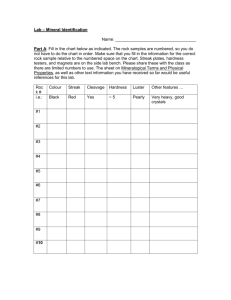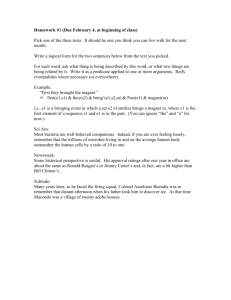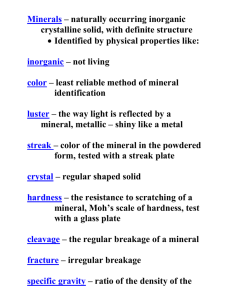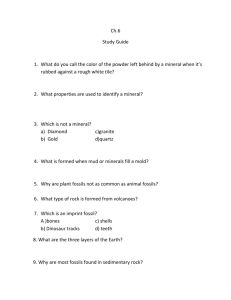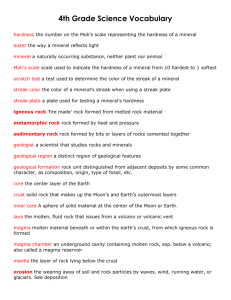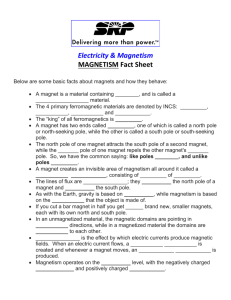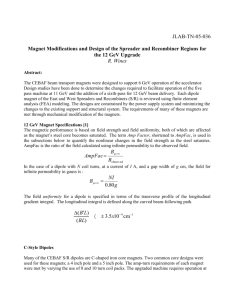4th Grade Science Vocabulary Words 2012-13
advertisement
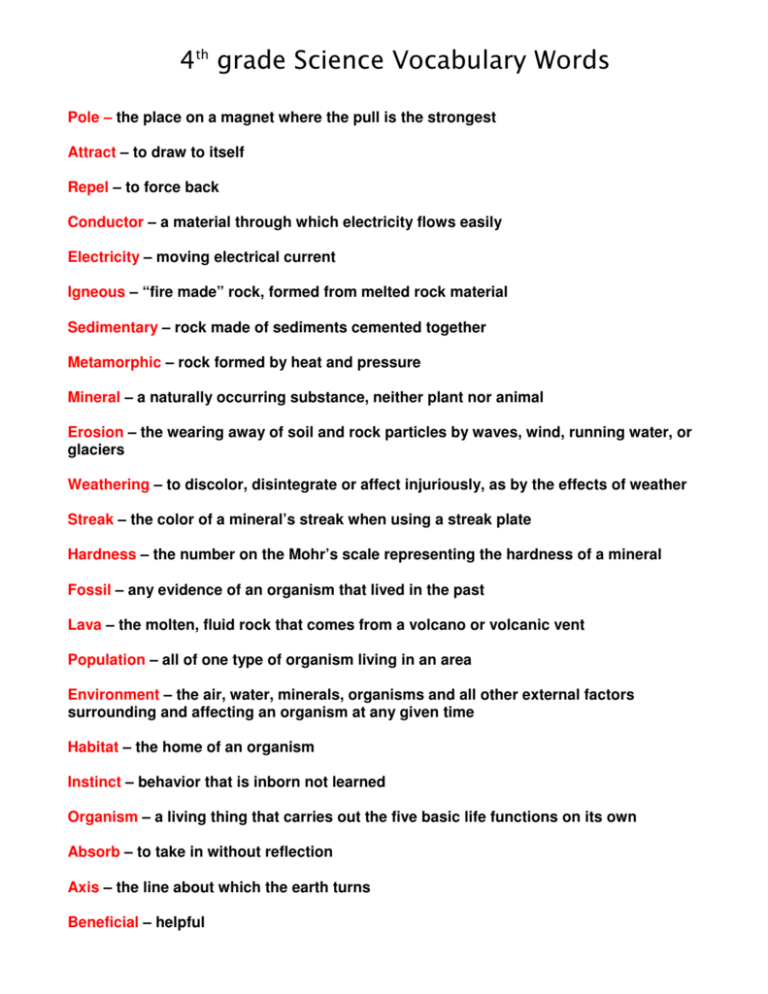
4th grade Science Vocabulary Words Pole – the place on a magnet where the pull is the strongest Attract – to draw to itself Repel – to force back Conductor – a material through which electricity flows easily Electricity – moving electrical current Igneous – “fire made” rock, formed from melted rock material Sedimentary – rock made of sediments cemented together Metamorphic – rock formed by heat and pressure Mineral – a naturally occurring substance, neither plant nor animal Erosion – the wearing away of soil and rock particles by waves, wind, running water, or glaciers Weathering – to discolor, disintegrate or affect injuriously, as by the effects of weather Streak – the color of a mineral’s streak when using a streak plate Hardness – the number on the Mohr’s scale representing the hardness of a mineral Fossil – any evidence of an organism that lived in the past Lava – the molten, fluid rock that comes from a volcano or volcanic vent Population – all of one type of organism living in an area Environment – the air, water, minerals, organisms and all other external factors surrounding and affecting an organism at any given time Habitat – the home of an organism Instinct – behavior that is inborn not learned Organism – a living thing that carries out the five basic life functions on its own Absorb – to take in without reflection Axis – the line about which the earth turns Beneficial – helpful Charge – the positive or negative property of an atom Cleavage – the natural splitting of rocks or minerals along the planes of weakness Earthquake – series of vibrations in the earth’s crust Inherited Behavior – a behavior that is inborn, passed on from a parent Magnetism – the force that causes a magnet to attract materials Orbit – the curved path of a planet or satellite around a celestial body, such as the earth around the sun Reflect – to cast back from a surface Rotation – the movement of the earth turning on its axis Solar Energy – energy derived from the sun South Poles – one end of a magnet where the pull is the strongest, attracts the North Pole of another magnet North Poles – one end of a magnet where the pull is the strongest, attracts the South Pole of another magnet Volcanic Eruption – the sudden discharge of steam and lava from a volcano
